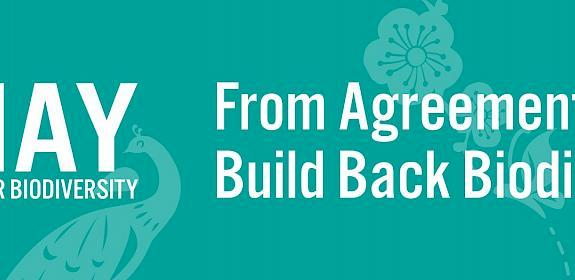Gender empowerment, legality frameworks, and species identification on the agenda at the ITTO Council
Yokohoma, Japan, 14th November 2018—the International Tropical Timber Organization (ITTO) has completed the 54th Session of its Council, covering issues related to the conservation of tropical timber species as well as broader objectives surrounding sustainable development and trade.

The ITTO, with whom TRAFFIC signed a Memorandum of Understanding in 2016, is an intergovernmental organisation promoting the sustainable management and conservation of tropical forests and the expansion and diversification of international trade.
The council was attended by Mr Chen Hin Keong, Director of TRAFFIC’s Forestry Programme, and the Chair of the Civil Society Advisory Group (CSAG) of the ITTO.
The role of women in achieving ITTO’s conservation and sustainability objectives was the topic of discussions during the plenary session of the CSAG. The Panel session was facilitated by Sheamala Satkuru, ITTO Secretariat. In a video message, Rosalie Matondo, Minister for the Forest Economy, Republic of Congo, stressed the important role of women in forest resources management, especially in wood energy production and its contribution to climate change.
The panel comprised of Mdm Cecile Bibiane Ndjebet, Founder and President of the African Women’s Network for Community Management of Forests, and a committee member of CSAG, who gave the key note speech. The other speakers were Delphine Ahoussi, President of MALEBI Africa, Ms Adi Estela Lazos Ruíz from “Women from Jamapa,” Mexico, Francoise van de Ven, the Secretary-General, Union des Forestiers Industriels du Gabon et Armenagistes (UFIGA), and Jennifer Conje from the US Forest Service (USFS).
Mdm Ndjebet lamented that despite their contribution to sustainable use of forest resources, women are primarily found at the “bottom of the pyramid” in the formal forestry sector. She commented that, now that ITTO has adopted the Guidelines for Gender Equality and Empowering Women (GEEW), ITTO should have a plan to assist member countries to ensure it is fully implemented. ITTO has a role to play to enhance the contributions of women in the forestry sector.
At previous Councils, the CSAG has issued statements to the Council urging action on gender empowerment, sustainable forestry management, sustainable and legal timber trade, the use of the FairWild Standard to enhance the livelihood and empowerment of forest communities, Indigenous Peoples rights among others.
The empowerment of women and indigenous communities, who are so often at the heart of the timber economies upon which local communities rely, is of the utmost importance within the sustainable development objectives we want to see
Chen Hin Keong, Director of TRAFFIC’s Forestry Programme
The practicalities of implementing fully verified sustainability in tropical timber supply chains underpinned other discussions throughout the Session. The role national legality frameworks can play in promoting legal, sustainable trade was of particular focus.
TRAFFIC recently completed a project to develop Guidelines for Verifying Timber Legality for Customs, working in close collaboration with the World Customs Organization (WCO), alongside the support of ITTO and funding from US and Japanese governments.
The project developed practical Guidelines for Customs officers identifying timber species, and it is currently being shared with the WCO and ITTO for further dissemination to Customs administrations and other enforcement agencies working on timber trade around the world.
TRAFFIC is currently also working with the Customs administration of Malaysia to develop localised training materials to help officers implement the Guidelines most relevant to them.
Funding has been successfully sourced from UK Department for International Development (DFID) (now FCDO) to prepare similar materials for Cameroon, Republic of Congo, China, and Viet Nam.
“We look forward to working with the WCO and ITTO to further localise the training and legality Guidelines for Customs within more countries. We’ll be working to arm frontline officers with as many tools as possible to help identify and combat illegal timber trade and move the sector closer to sustainability,” added Chen.





